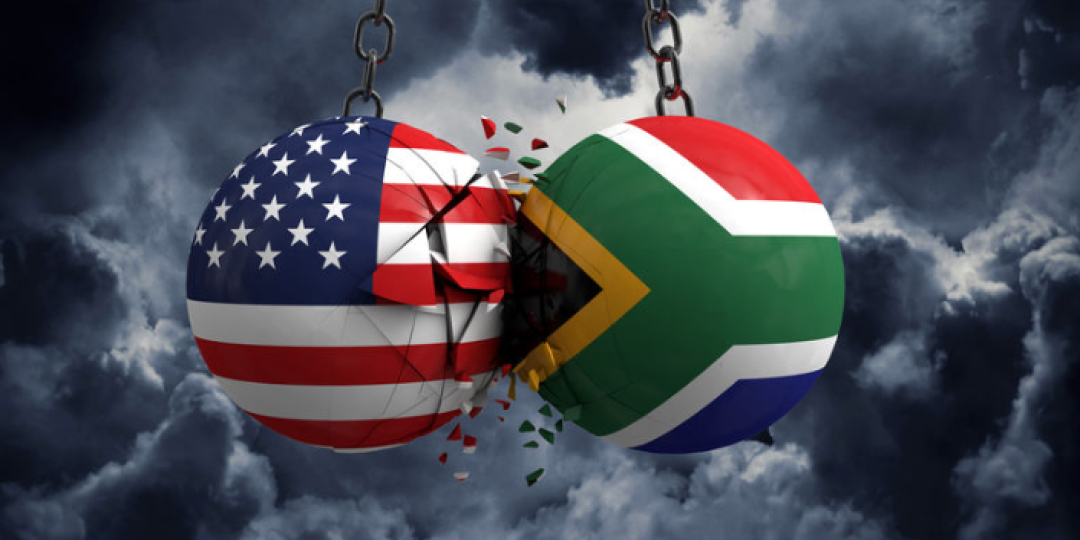The future of local trade relations with the United States is in jeopardy following an executive order by President Donald Trump to halt aid to the country, a move that has raised concerns about South Africa’s duty-free access to US markets under the African Growth & Opportunity Act (Agoa).
Business South Africa (Busa), the country’s leading business advocacy group, expressed deep concern over South Africa’s continued inclusion in Agoa, which provides preferential trade access to 30 African nations, Business Day reports.
According to Busa, approximately a quarter of South Africa's exports to the US benefit from Agoa, amounting to $3.6 billion in 2023. With the agreement set for renewal in September, the outlook appears uncertain.
Busa CEO Khulekani Mathe has said it’s not looking promising.
On the eve of a high-level delegation heading to Washington to hopefully rescue relations with the Trump Administration, Busa has said it’s hoping for a positive outcome despite signs indicating that trade relations between SA and the US are on the verge of a breakdown.
Trump’s executive order, signed on Friday, halts foreign aid to South Africa. His justification included South Africa's legal action against Israel at the International Court of Justice and the recently enacted Expropriation Act, which allows land expropriation without compensation.
Trump criticised the legislation, claiming it targeted Afrikaner farmers and amounted to human rights violations. Additionally, he announced that Afrikaners facing "unjust racial discrimination" would be eligible for refugee status in the US.
During his recent State of the Nation Address, President Cyril Ramaphosa reaffirmed South Africa's commitment to its foreign policy, rejecting external pressures and reinforcing the government’s support for Palestine. He also confirmed that a high-level delegation would travel internationally to clarify South Africa’s stance.
The US allocated nearly $440 million in aid to South Africa in 2023, with the majority—$364m—earmarked for health initiatives.
Business Day reports that Trump’s order seemingly overrides a previous exemption granted to parts of the US President’s Emergency Plan for Aids Relief (Pepfar) by then-Secretary of State Marco Rubio. This exemption followed a broader foreign aid freeze imposed on January 20 for a 90-day review period to align spending with Trump’s "America First" policy.
Stavros Nicolaou, chair of the Pharmaceutical Task Group, highlighted the risks posed by these developments. He warned that disruptions to NGO funding through Pepfar could impact South Africa's HIV/Aids programmes and lead to increased healthcare pressure from neighbouring countries. While South Africa does not rely on Pepfar for direct antiretroviral supply, the funding supports salaries for over 15 000 health workers.
Democratic Alliance (DA) leader John Steenhuisen criticised Trump’s approach, stating that while his party opposed several ANC policies, the solution lay in domestic reforms rather than measures that harmed vulnerable communities and weakened the economy.
The DA has since said it will send its own delegation to Washington to promote sustained trade relations with the US, especially in relation to protecting duty-free market access benefits under Agoa.
The DA has also launched a legal challenge against the Expropriation Act, arguing it undermines property rights and economic stability.
The ANC, in response, condemned Trump’s executive order, calling it an attack on South Africa's sovereignty. It accused the Afrikaans community lobby group, AfriForum, of orchestrating a misinformation campaign to provoke US action against the country. AfriForum had previously lobbied the Trump administration in 2018 over land expropriation and farm attacks.
According to a report posted on Business Day’s news site on January 10, AfriForum, for its part, blamed Ramaphosa’s policies for the fallout, though it rejected Trump’s offer to relocate Afrikaners to the US, insisting they should remain in South Africa.
The broader Solidarity Movement, which includes AfriForum and represents around two million Afrikaners, stated that it had never claimed the government was engaging in mass land seizures. It called for South Africa to remain part of Agoa and announced plans to send a delegation to the White House to provide context on the situation in the country.
As tensions escalate, the outcome of diplomatic efforts in Washington will be crucial in determining South Africa’s future trade relations with the US.













